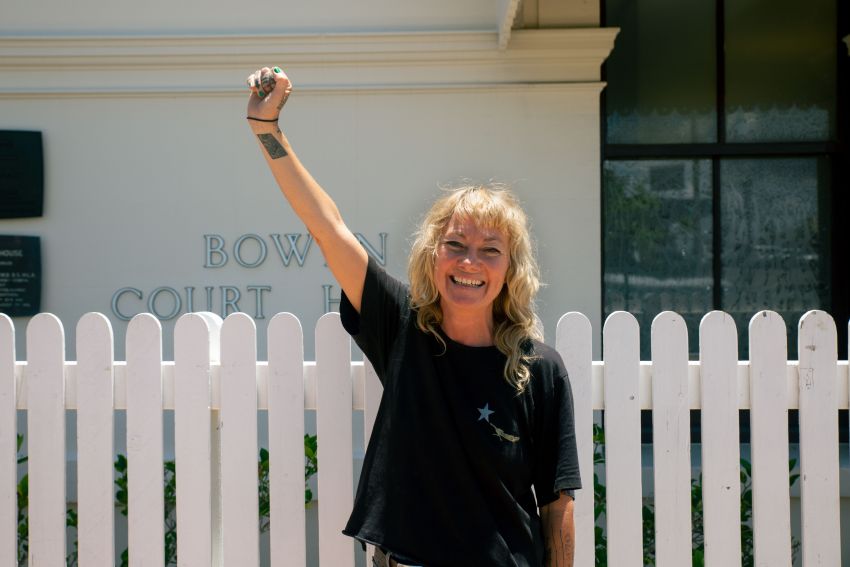
Climate activist Juliet Lamont was handed a suspended prison sentence in Bowen Magistrates Court on December 2 for peacefully protesting Adani’s central Queensland coal mine.
The 50-year-old documentary filmmaker and mother of two was given a one month jail term, suspended for nine months, after being charged for locking on to a train carrying the first coal from Adani’s mine on November 30.
Refused bail, Lamont was kept in custody for two nights before her hearing.
Her sentence comes just over a week after another climate activist, Sergio Herbert, was given a 12 month jail term for sitting on a coal train in Newcastle. Herbert was subsequently released on bail, pending an appeal against the sentence.
Lamont said of her protest: “I feel a profound moral obligation to protect our futures. The science is in and the writing is on the wall.
“It really is time for ordinary Australians to act. I know I couldn’t live with myself and couldn’t look my daughters in the eye if I did nothing. So I’m taking direct action.”
Frontline Action on Coal spokesperson Andy Paine said: “This is the latest example of consistent overreach by the legal system against climate activists who are taking non-violent action against industries that are knowingly destroying our climate.
“It’s not just the prison sentences that we have seen handed out recently. There is a repeated trend of those who make and enforce the law abusing it to restrict protest movement.”
A new report by Greenpeace, Global Warning: the threat to climate defenders in Australia, identifies an alarming escalation in repression against climate activists.
Forms of repression included: harsh, and at times unconstitutional, anti-protest laws; punitive bail laws and excessive penalties; threats to deregister charities that engage in climate activism; the targeting of activists with litigation; and surveilling and infiltrating groups of climate defenders.
Paine said: “If the police, courts and governments of Australia put as much effort into punishing those who are destroying our climate as they do to those trying to save it, maybe we wouldn’t be in the ecological crisis that we are.
“But the blatant hypocrisy of our legal system means that people of conscience and courage are going to keep taking direct action like this. It is the only avenue ordinary Australians have to address the disproportionate political power of polluting industries.”